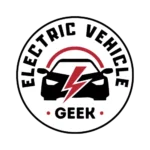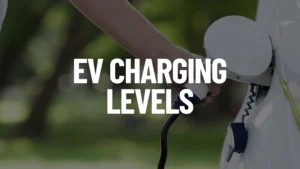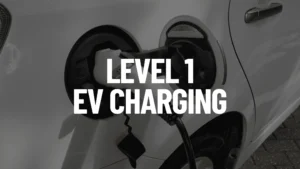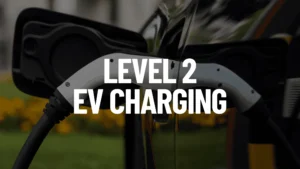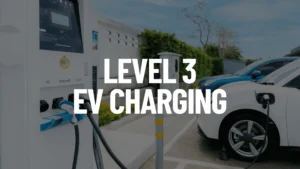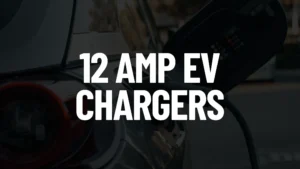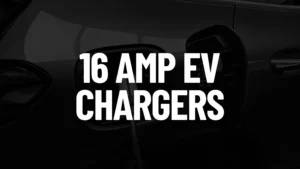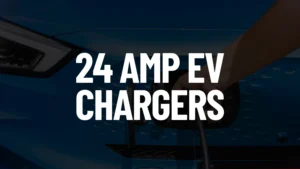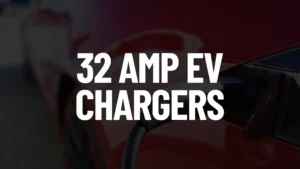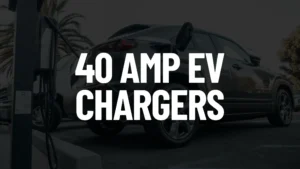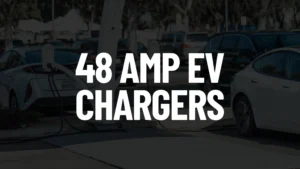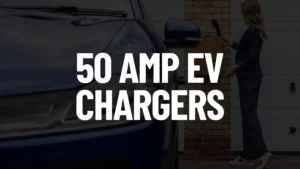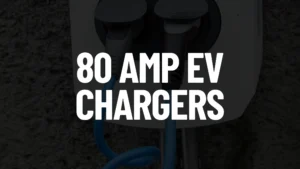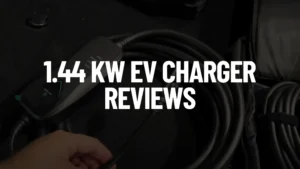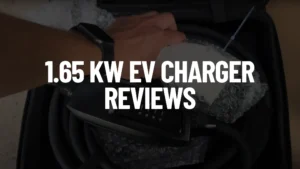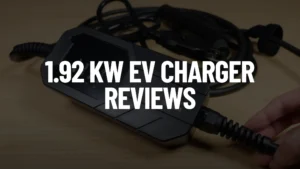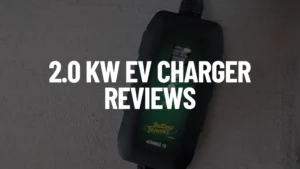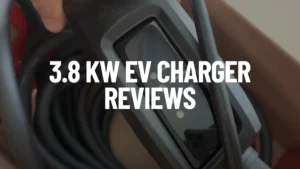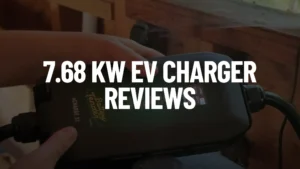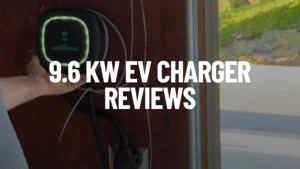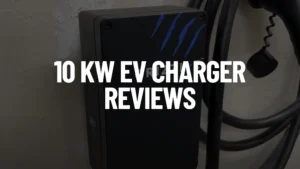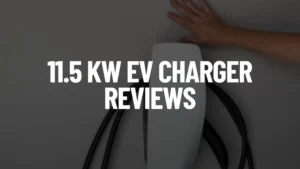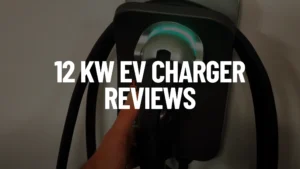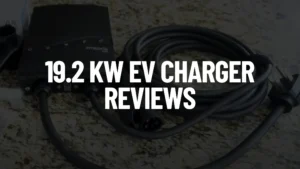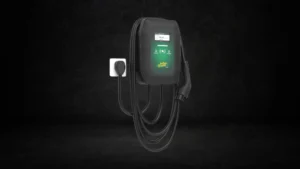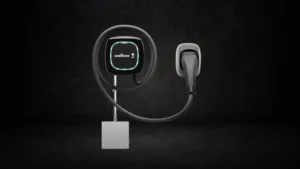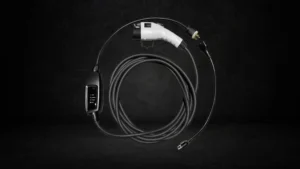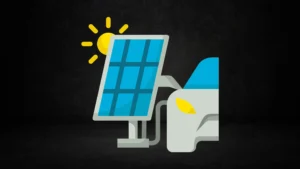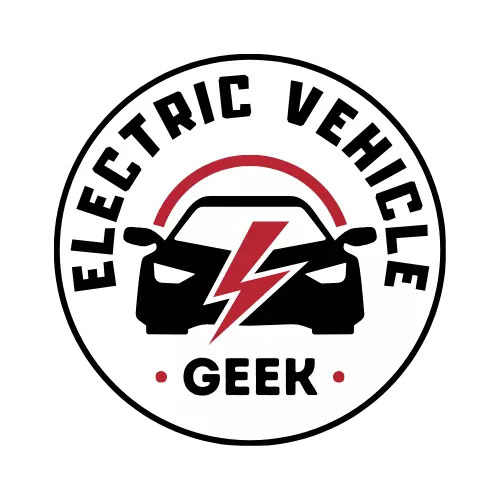Supported by you via insider access, and when you purchase through links on our site, we may earn an affiliate commission. See our Affiliate Disclosure.
EV Charger Specifications Guide
At Electric Vehicle Geek, we include detailed EV charger specifications in every review to help you quickly identify the charger that best fits your needs.
EV charger specifications are the technical details and characteristics of a charger, providing crucial information about compatibility, performance, and installation requirements. These specifications typically include connector type, charging level, power (kW), voltage, amperage, cable length, safety certifications, and smart features.
Choosing the Right EV Charger Specifications
Choosing the right EV charger begins with understanding its specifications, which determine compatibility with your electric vehicle and electrical system, performance, and installation requirements. This guide breaks down the essential EV charger specs, helping you make a confident, informed decision for your home or business charging setup.
Editor Tip: We know EV charger specifications matter, which is why our EV charger collection pages feature our custom EV charger filter that uses EV charger specifications to help you quickly narrow your search. Our EV charger comparison tool also uses these specifications to compare multiple EV chargers, making it easy to find the charger that perfectly fits your needs.
Choosing EV Charger Voltage
EV Charger Voltage is the electric potential (measured in volts, V) supplied by the charger. It sets the rate of current flow and determines how fast the EV battery charges and what electrical system it’s compatible with.
When deciding between a 120V (Level 1) charger and a 240V (Level 2) charger, it’s important to look beyond just voltage values. Your choice should reflect your daily driving needs, lifestyle, budget, vehicle compatibility, and your home’s electrical capacity.
We recommend using a 120V Level 1 charger, which requires a dedicated 120V circuit, only if your daily commute is short and you can reliably leave the car charging overnight. While it is affordable to set up and works for low-mileage drivers, it is far too slow and inefficient for larger batteries or drivers with higher daily mileage needs.
240V EV Charger
We recommend installing a 240V Level 2 charger, which requires a dedicated 240V circuit, since it delivers 10–60 miles of range per hour and provides the ideal balance of charging speed, convenience, efficiency, and long-term value for most EV owners, especially those with larger battery packs or higher daily mileage needs.
Expert Recommendation
We recommend a 240V Level 2 charger as the best home EV charging solution for most drivers, delivering the right balance of speed, convenience, and long-term value.
Choosing the Right EV Charging Level
EV chargers are grouped into three main levels: Level 1 AC Charging, Level 2 AC Charging, and DC Fast Charging (DCFC), each corresponding to a different charging speed. Understanding these charging levels helps you pick the best option for your needs. Here’s a quick guide to Level 1, Level 2, and DC Fast Chargers.
Basic, slow charging (plug into standard wall outlet). Often comes with the car.
Faster charging, requiring a dedicated 240V circuit. Most common for home installations.
Very rapid charging, typically found in public stations, not practical for home use.
EV charger amperage (A) measures the electrical current delivered from the charger to your EV’s battery. Higher amperage means more electricity flows at once, resulting in faster charging speeds.
Choosing the right amperage ensures charging is efficient, safe, and compatible with both your EV’s onboard charger (OBC) and your home’s electrical system. Home EV charger amperage options range from entry-level 12–16 A Level 1 chargers to high-power 16–80 A Level 2 chargers, giving you flexibility to match speed, capacity, and infrastructure.
Check your electric vehicle manufacturer’s specifications to determine your EV’s maximum supported charging amperage.
12A, 120/240V (1.44 kW)
12A EV charger adds 3–8 miles/hour, convenient Level 1 home charging for smaller EVs.
16A, 120/240V (1.92–3.84 kW)
16A EV charger adds 3–12 miles/hour, faster Level 1 or entry-level Level 2 home charging.
24A, 240V (5.76 kW)
24A EV charger adds 22 miles/hour, reliable Level 2 home charging for everyday use.
32A, 240V (7.68 kW)
32A EV charger adds 26 miles/hour, consistent Level 2 home charging for most residential EVs
40A, 240V (9.6 kW)
40A EV charger adds 30 miles/hour, ideal Level 2 home charging for larger EV batteries.
48A, 240V (11.5 kW)
48A EV charger adds 40 miles/hour, efficient Level 2 home charging for high-capacity EVs.
50A, 240V (12 kW)
50A EV charger adds 45 miles/hour, fast and reliable Level 2 home charging at home.
80A, 240V (19.2 kW)
80A EV charger adds 75 miles/hour, rapid Level 2 home charging for long-range EVs.
Editor’s Tip: High-amperage EV chargers deliver faster charging but come with higher electrical demands, costs, and installation needs. Make sure your home and EV can handle the load for safe, efficient daily use.
An EV charger’s kW rating, or kilowatt rating, is the measure of its power output. It is the single most important specification for determining how fast a charger can add energy to an electric vehicle’s battery. A higher kW rating means the charger can deliver more power per second, resulting in a faster charging speed.
When choosing a home EV charger, consider the power output (kW) in the context of more than just charging time or your vehicle’s battery size. Your decision should also factor in your budget, daily driving habits, location, your EV’s onboard charging capabilities, your home’s electrical infrastructure, and any installation requirements.
Here are the main kW categories with expert-reviewed chargers
Perfect for slow, overnight Level 1 charging of small EVs.
120V, 12A, 1.44 kW
Efficient Level 1 charging for short daily trips and commutes.
120V, 14A, 1.65 kW
Slightly faster AC charging for compact EVs at home.
120V, 16A, 1.92 kW
Reliable entry-level home charging solution for everyday use.
120V/240V, 16.7A*, 2.0 kW
Balanced charging speed suitable for small to mid-size EVs.
240V, 16A, 3.84 kW
Faster Level 2 charging for most home garage setups.
240V, 32A, 7.68 kW
Popular mid-range option for consistent daily home charging.
240V, 40A, 9.6 kW
Strong home charging performance without major electrical upgrades needed.
240V, 41.7A, 10 kW
Common Level 2 chargers with wide EV compatibility and flexibility.
240V, 48A, 11.52 kW
High-speed home charging solution for larger EV battery packs.
240V, 50A, 12 kW
Maximum home charging speed ideal for high-capacity EVs or multiple vehicles.
240V, 80A, 19.2 kW
An EV charger connector is the physical plug on the end of a charging cable that connects to an electric vehicle’s charging inlet. It’s the most visible component of a charging station and is designed to a specific standard to ensure safe and compatible power transfer.
EV chargers use different connector types depending on the vehicle and region. Most North American EVs (except Tesla) use the J1772 plug, while Tesla vehicles use the NACS connector, now being adopted by other automakers. CCS and CHAdeMO support DC fast charging, though CCS is more widely supported today. European and global markets often use Type 2 connectors. Always confirm which plug type your EV requires before purchasing a charger.

Choose by Installation Type: Hardwired, Plug-In, Portable, or Solar-Compatible
We’ve grouped EV chargers by installation type: hardwired, plug-in, portable, and solar-compatible. Hardwired chargers are permanently connected to your home’s panel and are ideal for high-amperage units (40–80A) or outdoor setups. Plug-in chargers use EV charger outlets such as NEMA 14-50 or 6-50 outlets, offering easier installation and portability, great for renters or those who may relocate. Portable chargers work with 120V or 240V outlets and are useful for travel or emergencies. Solar-compatible chargers connect to home solar systems, delivering cleaner energy and added independence from the grid.
Great for renters or homeowners who want flexibility. Perfect for indoor garages with a NEMA outlet. Best suited for chargers up to 40A and users who may move or upgrade later
Best for homeowners installing a permanent, high-powered charger (typically 40A and above). Ideal for outdoor setups or long-term installations where a clean, secure connection is preferred.
Ideal for commuters, travelers, and emergency backup charging. Includes compact EV chargers that work with standard 120V or 240V outlets for flexible, on-the-go Level 1 or Level 2 charging.
Designed for homeowners with solar panels who want to maximize self-consumption. Best for eco-conscious drivers looking to reduce grid dependency and charging costs.
Smart Features and Connectivity
Smart EV chargers offer greater control, efficiency, and convenience. Most models include Wi-Fi or Bluetooth for app-based features like remote start/stop, scheduling, real-time energy monitoring, and usage alerts. These help you charge during off-peak hours, manage costs, and monitor charging history.
Advanced chargers support Dynamic Load Management (DLM), adjusting power use to prevent overloading your home’s panel, ideal if you’re running other appliances or charging multiple EVs. Some units also integrate with solar systems to prioritize excess solar energy for charging.
Look for models that support over-the-air (OTA) updates, user authentication via app or RFID, and voice control through Alexa or Google Assistant. These features ensure your charger stays secure, up to date, and easy to use.
When choosing an EV charger, prioritize built-in safety features. Look for temperature sensors, overcurrent and overvoltage protection, and short circuit protection to help safeguard your charger, vehicle, and home. Ground fault protection is essential for preventing electric shock, especially in wet or outdoor installations. Surge protection defends against lightning strikes and utility grid fluctuations, particularly important in areas prone to electrical surges. Smart recovery features, such as auto shutoff and restart logic, ensure safe, uninterrupted charging in regions with frequent power outages or grid instability.
Convenience & Aesthetic Features
When shopping for an EV charger, consider everyday usability. Look for models with integrated cable management to keep cords organized and prevent damage. LED indicators offer at-a-glance status updates for charging or faults. Sleek, modern designs help the unit blend into your garage or driveway. Adjustable amperage settings give you control over power output, useful for managing load on limited electrical systems or reducing energy use during peak hours. These features enhance both convenience and long-term durability.

James Ndungu is a certified EV charger installer with over five years of experience in EVSE selection, permitting, and installation. He holds advanced credentials, including certification from the Electric Vehicle Infrastructure Training Program (EVITP) and specialized training in EV charging equipment and installation, as well as diplomas in EV Technology and Engineering Fundamentals of EVs. Since 2021, James has tested dozens of EV chargers and accessories, sharing expert insights into the latest EV charging technologies.
